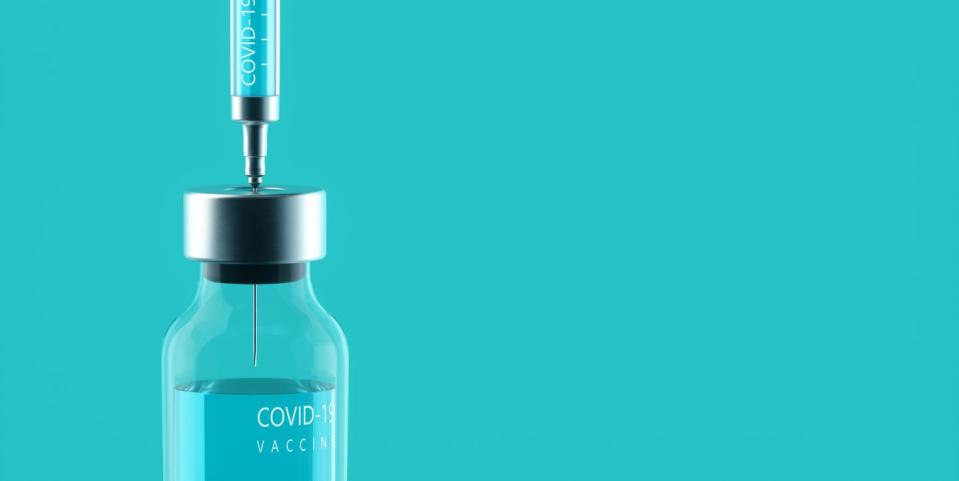Is It OK to Delay Your Second Dose of the COVID-19 Vaccine? Here’s What Doctors Say

Winter weather has delayed distribution of the COVID-19 vaccine across states.
Due to shipment issues, some people have experienced canceled appointments while waiting for the second dose of their vaccine.
Experts say that missing or delaying your second dose is not ideal, but should not interfere with efficacy once you are able to get fully vaccinated.
Across the country, winter weather has delayed distribution of the COVID-19 vaccine. States, including Texas, California, Colorado, Florida, Illinois, Nevada, New York, Oregon, and others, have seen shipment delays, according to The New York Times.
If you’re due for your second dose of the vaccine and your appointment was canceled, you probably have questions about how far you can space out doses (depending on which vaccine you got, the second inoculation is supposed to happen three or four weeks after the first). Here’s everything you need to know about the timing of your second dose.
Why do you need two doses of the available COVID-19 vaccines, again?
Currently, there are two COVID-19 vaccines approved for use in the U.S.: One made by Pfizer-BioNTech and another by Moderna.
Clinical trials conducted by each company found that the vaccines were more effective when they were given in two doses, spaced a certain amount of time apart. With two doses, Pfizer-BioNTech says its vaccine is 95% effective, and Moderna reports 94.5% efficacy.
A scientific article published in JAMA in early February noted that one dose of each vaccine creates a “relatively weak immune reaction.” But, after two doses, the vaccines were “highly effective” in preventing COVID-19 infections that cause symptoms.
When should you get your second dose of the COVID-19 vaccine?
The timing for each vaccine is slightly different. The Centers for Disease Control and Prevention (CDC) currently recommends that the Pfizer-BioNTech vaccine be given 21 days apart. For the Moderna vaccine, the organization recommends getting the shots 28 days apart.
Is it OK if your second vaccine dose gets delayed?
In early February, the CDC released guidance stating that people can delay a second dose of the vaccine for up to six weeks (or 42 days) after the first dose.
The agency notes that there is currently “limited data” on how well the vaccines perform if they’re given past the six-week window. But, the CDC adds, “if the second dose is administered beyond these intervals, there is no need to restart the series.” In other words, you won’t need to start all over again if you can’t get your second shot within 42 days.
What if you can’t get your second dose within six weeks? Many infectious disease experts believe the vaccine will still be effective. “You’ll get the full benefit whenever you get the second dose,” says infectious disease expert Amesh A. Adalja, M.D., senior scholar at the Johns Hopkins Center for Health Security. “However, the quicker you get the second dose, the faster you’ll have the full protection.”
While spacing out your second dose of the COVID-19 vaccine for longer than 42 days hasn’t been tested in clinical trials, there is some precedence with other multi-dose vaccines, says William Schaffner, M.D., an infectious disease specialist and professor at the Vanderbilt University School of Medicine. “With other multi-dose vaccines we give to adults like Shingrix and the hepatitis B vaccine, there’s no problem with spacing it out,” he says. “We don’t like people to delay the subsequent doses but, when you do get it, your immune system remembers it from the first dose and responds perfectly well.”
The bottom line: Even though it’s possible to space out your vaccination, Dr. Schaffner says it’s important to get your second dose as soon as you can. “In order to get the full protection, you really do need that second dose,” he notes.
This article is accurate as of press time. However, as the COVID-19 pandemic rapidly evolves and the scientific community’s understanding of the novel coronavirus develops, some of the information may have changed since it was last updated. While we aim to keep all of our stories up to date, please visit online resources provided by the CDC, WHO, and your local public health department to stay informed on the latest news. Always talk to your doctor for professional medical advice.
Go here to join Prevention Premium (our best value, all-access plan), subscribe to the magazine, or get digital-only access.
FOLLOW PREVENTION ON INSTAGRAM
You Might Also Like

